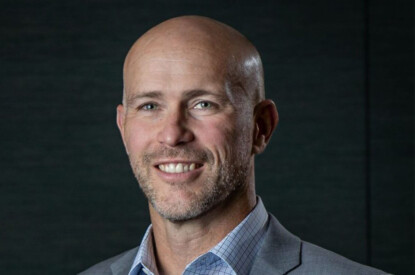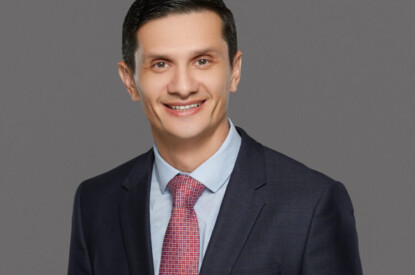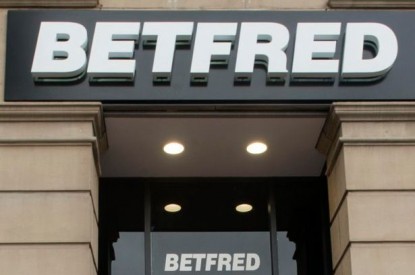Impulso
Gettare le basi: lo sforzo erculeo di Betfred USA
By William - 19 febbraio 2024
Ahead of his speaking appearance at SBC Summit North America, Bryan Bennett, Consultant and Strategic Advisor at NorthCo Strategy, reflects on his four years heading up Betfred’s US operations and the challenge of implementing a strategy capable of garnering recognition for a household UK brand across the pond.
Could you tell us more about NorthCo Strategy, the services the firm provides and the clientele it assists?
When I left my position as COO of Betfred USA in September 2023 after four years of running all US operations, I originally intended to take some time off and do a bit of consulting before jumping back into an operating role of some kind in 2024.
However, after announcing my departure, I was so inundated by unsolicited inbound opportunities that I scrapped the time off piece and decided to jump right into opening my own consulting firm. Right now, it’s a one-man shop, which I absolutely love by the way, and my clients are all in the iGaming and sports betting space, or closely adjacent to that space.
In your LinkedIn profile, you refer to being part of ‘wildly successful startups as well as spectacular flameouts’. Could you walk us down memory lane? What hits and misses stand out in your career to date?
The hits are certainly more fun to talk about, but I probably learned more from the failures. I haven’t always been in the iGaming world, so my biggest hit was as employee #13 for a free to play gaming company called Kabam. I joined the company when we were building Facebook apps but rode the rocket to over 600 employees and an eventual acquisition by Netmarble. My only regret is that I didn’t stay longer to let all of my options vest.
I then had a nice exit as part of the founding team at Rocketplay, a social casino company that we sold to AGS in 2015 where I subsequently led the Interactive division and was on the NYSE floor for the IPO in 2018. In terms of failures, mobile gaming company Booyah comes to mind as probably the most expensive. They had a massive success with one game, raised about $30m from VCs which is about when I joined, and the company completely shut down two years later…a flameout of epic proportions.
How do you use the knowledge you’ve gleaned from both sides – the successful and the not so successful – to advise today’s startups? What are the signs that a young gaming business has what it takes to make it in 2024?
First and foremost, I will only work with founders that I like and admire. That may sound elementary, but you can sometimes get too wowed by the opportunity or great products and tech while ignoring the people side of the business. Founders have to be willing to listen to honest feedback and not be afraid to pivot. Almost every successful startup will have at least two pivots early in their lifecycle and the two exits I’ve had were no different. Founders that ignore the warning signs and stay on the original course too long often fail.
As the saying goes, you’re betting on jockeys not horses. So, in terms of signs of success, for me it really starts with the people involved. From there, as long as they can get to product-market fit in a reasonable time and have the ability to execute, they have a chance. But in truth, 90 per cent of startups fail. So you need good people, a good product, some funding and a bit of luck to make it.
How do you reflect on your time at Betfred USA Sports? How did the US team scale over your fours years or so in charge?
My time at Betfred was a fantastic experience. I was given an enormous task, but also an enormous amount of latitude to start and run the US operations. I really do thank Fred Done, Mark Stebbings, Joanne Whittaker and the entire UK-based executive team for trusting me with the keys to the US business. When I started in October 2019, I was the first employee and we didn’t have an office.
Four years later, we had over 100 employees, a robust HQ in Las Vegas and operations in 10 states. While we didn’t scale like we had planned in terms of revenue and market share, the herculean effort it took to establish operations in 10 states is a testament to the fantastic team that joined me for the ride.
What challenges did you face in getting the Betfred brand recognised stateside? How significant were local partnerships in this regard?
While Betfred is a household name in the UK, it isn’t in the US. That proved to be a significant challenge when going against multiple 800 lb gorillas with decades of brand building powering their marketing efforts. We attempted to combat that by signing local partnerships with professional sports teams like the Denver Broncos and Cincinnati Bengals to add local credibility to the Betfred brand. That certainly helped, but without the ability to meaningfully amplify those partnerships via traditional advertising, I don’t think we saw the full benefit.
In retrospect, I wouldn’t do those expensive deals and instead take the slow and steady approach of entering fewer markets and focusing almost exclusively on performance marketing early on. With the benefit of hindsight, I think Tier 2 operators have to be extremely selective when deciding which markets to enter.
How arduous was the licensing for online and retail operations? Did the team become more savvy with licensing complexities over time?
Licensing in the US is done on a state by state basis with some states being significantly easier than others. However, it doesn’t just stop with the actual granting of the licence. The regulatory framework in the US is very different than in other jurisdictions. Once you have a licence, there is also a variety of other compliance hoops to jump through from internal controls to responsible gaming to ongoing reporting and such.
I think the UK team would sometimes get caught up in thinking that once the entity and personal licensing documents were filed, that the compliance piece was done. That’s not true in the US where ongoing compliance can also be extremely time consuming for the organisation.
That’s another reason why a slow and steady approach would have been better in hindsight. The process of trying to get licensed in multiple states while also managing the ongoing compliance hurdles of starting and continuing operations proved difficult for a small team.
Taking a holistic view, how do you see the North American iGaming and sports betting operator landscape evolving over the coming year?
I’ll leave the legislation and regulation piece to others in the industry with much more knowledge on what’s going on in the various statehouses. From a business perspective, I don’t think we’ll see much change in the competitive landscape with DraftKings and FanDuel continuing to dominate overall.
I think the companies that I’m most interested in seeing how they can shake things up are Bet365 and Fanatics. Both have product differentiators which I think is a requirement for challenging for a spot in the top four. ESPNBet has marketing muscle, but I don’t think that’s enough for them to achieve consistent double digit market share.
In the iGaming space, DraftKings’ recent acquisition of Jackpocket to go along with their existing operations will be a difference maker. I think FanDuel has to reciprocate with an acquisition of their own to improve their iGaming operations. Everyone has their eye on BetRivers which is obviously the most logical target. It wouldn’t shock me to see other acquisitions and/or market exits in 2024 to shrink the overall operator pool.
From a product persecutive, what does the US punter want that is currently being underserved? What avenues do you see for revenue generation and user monetisation?
As a resident of the great state of California, I’ll start with access. While 37 states have legal sports betting, three of the largest (California, Texas and Georgia) representing over 80 million people do not. It’s obviously much less for iGaming with only six states offering regulated casino games.
Outside of the regulatory environment, I think streaming is probably the biggest product improvement we’ll see across all of the major operators. European bettors probably take it for granted, but it’s not that common to be able to watch games within betting apps here in the US.
Finally, are you looking forward to SBC North America in May? What are your plans for the event?
I always look forward to the SBC North America event as it’s one of my favourite conferences of the year. This year will be no different as I have a speaking slot and will be hosting one of the rooms one day during the conference. In terms of plans, it will be more of the same with a lot of meetings a lot of coffee and several nights of drinks and dinner to catch up with colleagues and friends.




